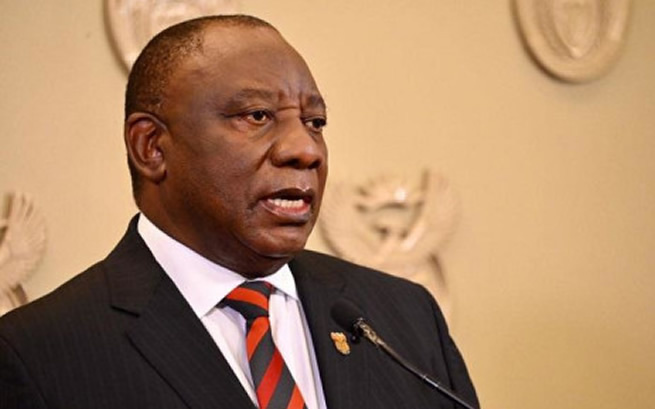President Cyril Ramaphosa is set to secure his re-election with the support of the Democratic Alliance (DA), a move that has sent shockwaves throughout the political landscape of South Africa. The groundbreaking deal was struck during the first sitting of the National Assembly, marking a significant moment in the country's political history.
A senior DA MP, speaking on the condition of anonymity, confirmed the agreement, stating, "It's done. We have a deal." The details of the arrangement reveal that the DA will back Ramaphosa's election as president, while the Agriculture Minister Thoko Didiza will assume the role of speaker. In return, the African National Congress (ANC) will support the election of a DA deputy speaker, with Annelie Lotriet being the likely candidate.
While the DA had yet to finalize their candidate for deputy speaker at the time of reporting, sources suggest that Annelie Lotriet, the party's deputy chief whip, is a likely contender. On the ANC side, Mdumiseni Ntuli is anticipated to take on the role of chief whip, further solidifying the evolving dynamics within the National Assembly.
Hellen Zille, the former leader of the opposition Democratic Alliance and representative in the negotiations, expressed optimism about the progress made so far. "This morning at two am we thought we had a finalized agreement, but this morning a few issues have arisen, and they're just trying to sort them out," Zille revealed.
The National Assembly's first sitting, held on Friday, is crucial for electing the speaker, deputy speaker, and president for the next five years. Following the general elections held on May 29, where the ANC secured 159 out of 400 seats, the party found itself in an unfamiliar position—falling short of the 50 percent majority required to maintain its unchallenged dominance in the National Assembly.
The Democratic Alliance's involvement in supporting President Ramaphosa's re-election does not come without controversy. The party's advocacy for free market economics clashes with the ANC's left-wing traditions, making this partnership an unpopular move among many ANC activists. Critics argue that the DA represents the interests of the white minority and accuse it of aligning with the "imperialist agenda." However, the urgent need for a stable government seems to have pushed both parties towards finding common ground.
The Inkatha Freedom Party (IFP), a Zulu nationalist party, has already expressed its willingness to participate in a government of national unity, securing the fifth position with 4% of the vote. However, the ANC's efforts to bring the third-largest party, uMkhonto weSizwe (MK), led by former President Jacob Zuma, and Julius Malema's Economic Freedom Fighters (EFF) into the coalition have not yielded success thus far.
The EFF has staunchly refused to join a government that includes the DA, citing it as part of the "imperialist agenda." Furthermore, both MK and EFF have called for changes to the constitution, including nationalization of white-owned land and banks. Ramaphosa and the ANC have opposed these demands, making it clear that they will not form a coalition with parties seeking constitutional amendments.
While the ANC labels this coalition as a Government of National Unity (GNU), its failure to secure the participation of the third- and fourth-largest parties underscores the challenges of creating a truly unified government.

Follow Us on Twitter











